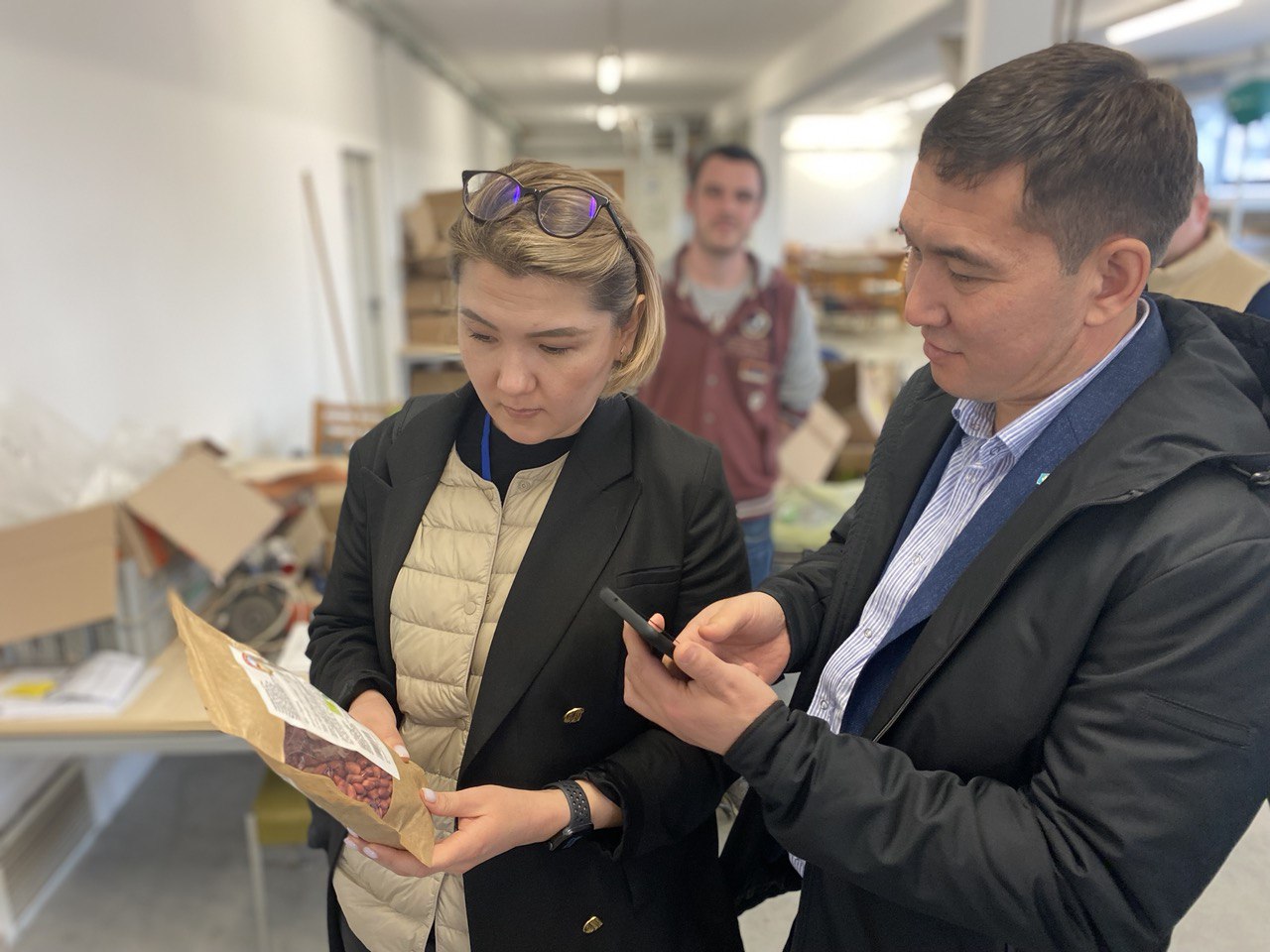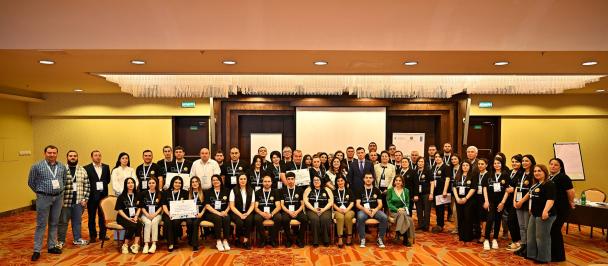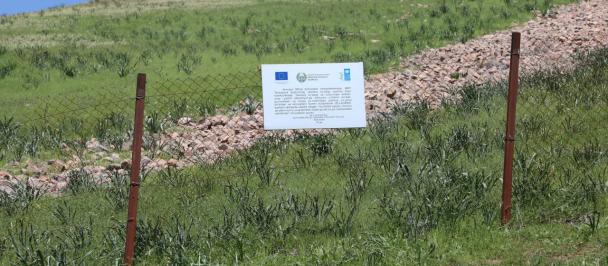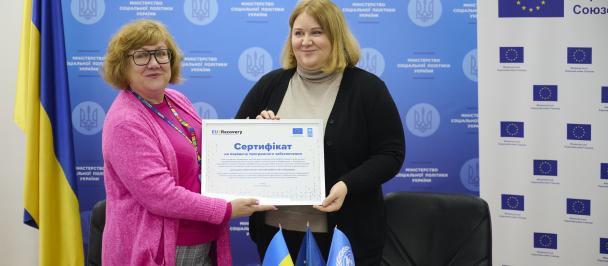Kazakhstan farmers visit green tech companies in Germany for a more sustainable agriculture
March 27, 2023

Astana, 27 March 2023 – The farmers of Kazakhstan visited Germany to explore the economic benefits of implementing green technologies in agriculture. This tour was supported by the United Nations Development Programme (UNDP), Atameken NCE and the Government of Japan in the framework of a Joint Project on the implementation of climate smart agro-technologies. The participants were farmers who piloted renewable energy solutions (wind and solar).
Farmers visited plants producing pellets (pelletized type of cylindrical solid fuel made of pressed agricultural waste and wood waste), biogas plants and a dairy farm and village that are already fully operating using "clean" energy from the sun. The participants had the opportunity to witness first-hand the economic profitability and sustainability of farms that use "green" technology and bio-raw materials for further processing.
"Our farm is located in a hard-to-reach region, close to a nature reserve, so the electrical lines were not connected to the farm. Thanks to my participation in the project, a solar system to heat water and solar panels to generate electricity were installed on my farm. We have clearly seen all the benefits of green energy and recycling here in Germany. We met farmers from different parts of Kazakhstan and came up with the idea of forming a community of farmers who implement similar technologies on their farms. The aim is to exchange our experiences in the future,"said Tatyana Pospelova, a farmer from Ridder.
Interestingly, energy efficiency and the rapid expansion of renewable energy sources, such as wind, solar, water and biomass, have been the focus of attention in Germany since the late 1990s. By 2030, at least 80 percent of the electricity consumed in Germany must be generated from renewable sources. This substantial redesign of Germany's energy supply infrastructure is the primary prerequisite for the country to achieve climate neutrality by 2045.
"We can clearly see how far our German colleagues have progressed in terms of natural resource conservation. All residual waste on farms is used to produce electricity and fertilizer. Its implementation, suited to Kazakhstan's reality, will increase the income of entrepreneurs of Kazakhstan. We hope that this experience will be successfully implemented in our country as well,"said Yerbol Yesseneyev, Deputy Chairperson of the Board of Atameken NCE a.i.
Under a UNDP Project funded by the Government of Japan, drought forecasting and prevention equipment was also procured and handed over to Kazhydromet. The new equipment, which will be added to the existing one, will provide an immediate forecast of the onset of drought to inform regional authorities and farms.
The Government of Japan acted as the major partner of UNDP in implementing the "Climate Promise: From Promise to Action" Global Initiative. This initiative is a global climate and development proposal by UNDP to support countries in meeting their national commitments under the Paris Agreement.

 Locations
Locations






